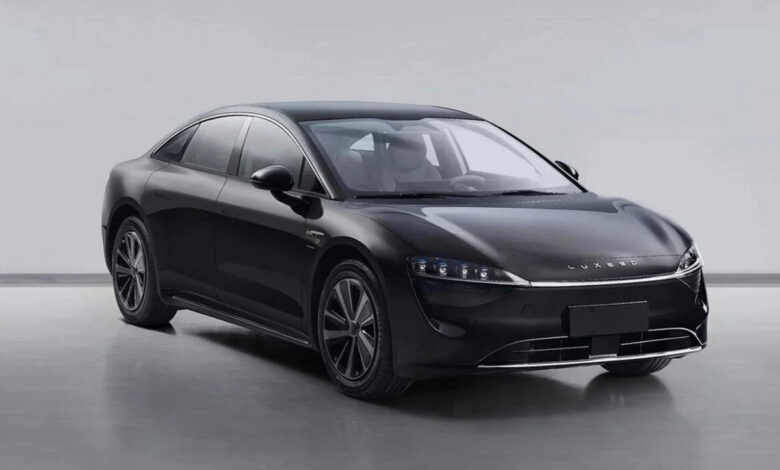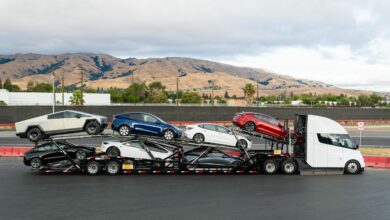
Huawei and Chery Collaborate on Luxeed EV to Challenge Tesla’s Dominance
Luxeed S7 to Debut in November, Promising to Outperform Tesla Model S
In an exciting collaboration, smartphone giant Huawei has joined forces with China’s Chery Automobile to introduce their new electric vehicle (EV) brand, Luxeed. Set to make its debut in the coming months, Luxeed aims to take on Tesla in the ever-evolving electric car market.
The Luxeed S7, the inaugural model of this partnership, is scheduled to be unveiled in the Chinese market towards the end of November. This groundbreaking development was confirmed by Richard Yu Chengdong, the head of Huawei’s car department, in a statement reported by the South China Morning Post. As it enters the market, the Luxeed S7 will face stiff competition from established EV leaders like Tesla and BYD, as well as emerging players like NIO, XPeng Motors, and Li Auto.
During a recent launch event, Chengdong hinted at the Luxeed S7’s prowess, stating, “The car will make its debut in late November, and it will be superior to Tesla’s Model S in various aspects.” While specifics regarding pricing, range, and intelligent features remain undisclosed, information from China’s Ministry of Industry and Information Technology website reveals that the EV will be built on the Chery Auto E0X platform, designed for all-wheel-drive, dual-motor vehicles.
Common features expected in EVs, such as semi-autonomous driving, self-parking capabilities, and advanced voice controls, are likely to be part of Luxeed’s offerings. These features have gained popularity among Chinese consumers in the middle class, and the collaboration between Chery and Huawei is poised to tap into this growing demand.
Gao Shen, a Shanghai-based independent auto analyst, commented on the partnership, saying, “Chery is an automotive powerhouse, and Huawei’s strongest partner in developing smart cars so far. High hopes have been pinned on Luxeed because of the marriage between Huawei’s technological clout and Chery’s manufacturing heft.”
Chery, based in the eastern Chinese province of Anhui, has made a significant shift towards electric vehicles. The company even established the subsidiary Jetour in 2018, which saw impressive growth, selling over 180,000 EVs last year—an increase of 17 percent year-over-year.
It’s worth noting that Huawei has faced challenges in the form of sanctions imposed by the U.S. government. These sanctions, which expanded earlier this month, follow initial restrictions placed on the company in 2019. In 2021, a Huawei executive’s comment branding Tesla’s vehicles as “killing machines” led to legal complaints from the U.S. automaker.



